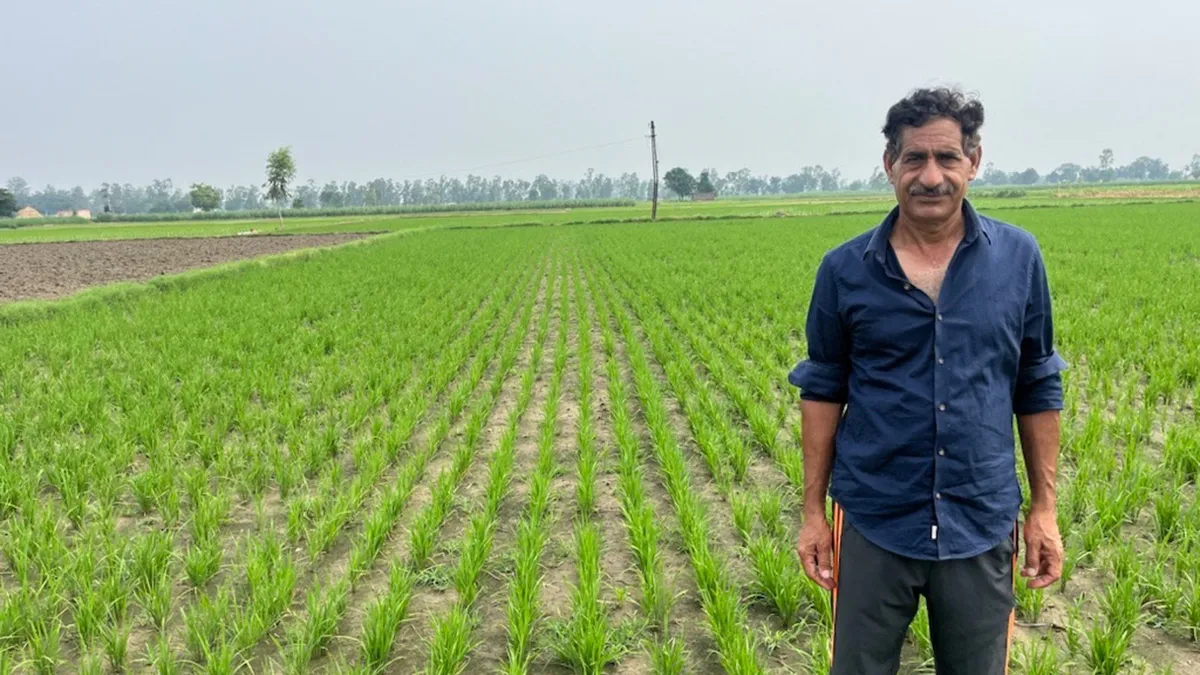Dive Brief:
- Bayer is supporting small farms in some of the world's largest rice exporting countries transition to more sustainable cultivation practices that can cut water use and emissions.
- The crop sciences giant announced this week a direct-seeded rice system that relies on less labor, while reducing water use by up to 40% and lowering emissions by up to 45%.
- Bayer aims to support 2 million farmers across 1 million hectares in India by 2030 through its DirectAcres program. The program, which will also be introduced in the Philippines next year, provides farmers with seeds, crop protection and technologies to transition to direct-seeded methods.
Dive Insight:
Rice cultivation uses up to 30% of the world's fresh water resources, and flooded paddy fields significantly contribute to global emissions by fostering the growth of methane-emitting bacteria.
Instead of growing seedlings in nurseries and then transplanting them into waterlogged paddies, direct-seeded methods involve planting seeds straight into fields. Bayer is designing high-yield hybrid seeds that are bred specifically for different farm environments and allows for rice to grow straight from the soil, according to the release.
Bayer is also developing a new rice herbicide for direct-seeded growing methods, which would allow farmers to control weeds without the need to flood fields.
Around 11% of farm fields in India use direct-seeded methods, though Bayer expects this number could hit 75% by 2040 as the country ramps up incentives for farmers to make the switch. The company sees regenerative agriculture as a $110 billion opportunity, and is investing heavily to become an industry leader through new technologies and more sustainable products such as its hybrid rice seeds.
Bayer plans to introduce DirectAcres in other rice growing countries in the Asia-Pacific, starting with the Philippines in 2024. Farmers in the DirectAcres program receive access to Bayer's crop advisory tool and the company's carbon credit program, which could open up new revenue streams for growers.
“We are building entire systems based on regenerative agriculture practices that create value for farmers and nature alike and that help address the issue of global food security,” Frank Terhorst, head of strategy and sustainability at Bayer’s Crop Science division, said in a statement.











